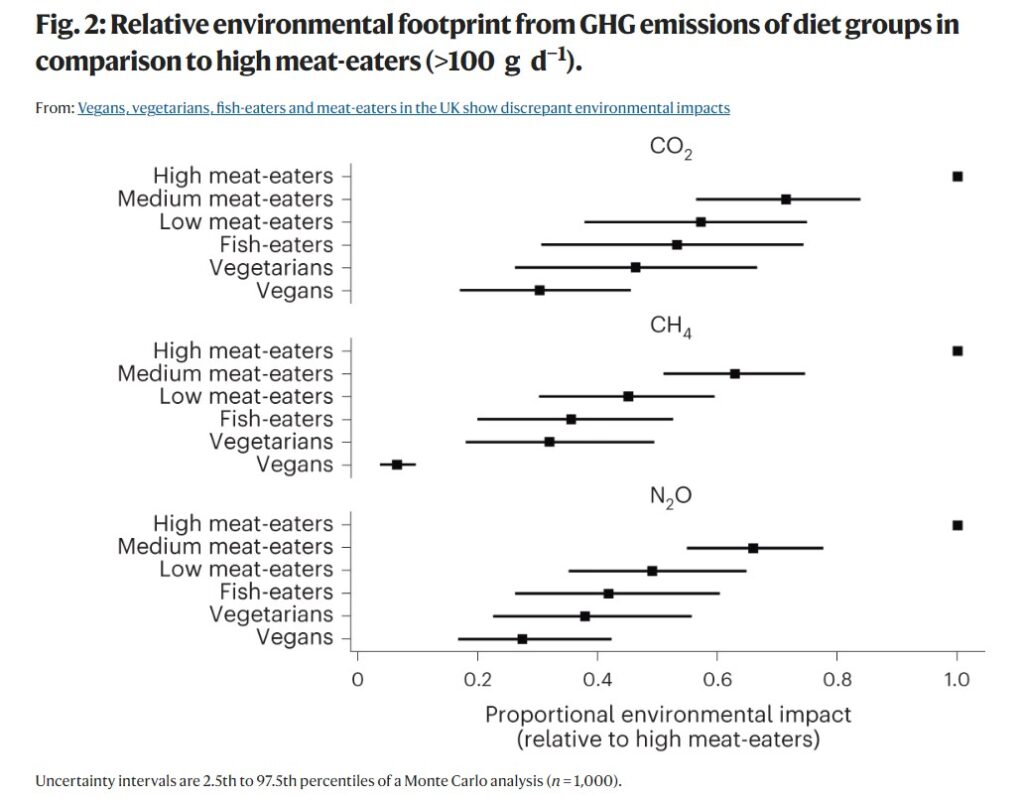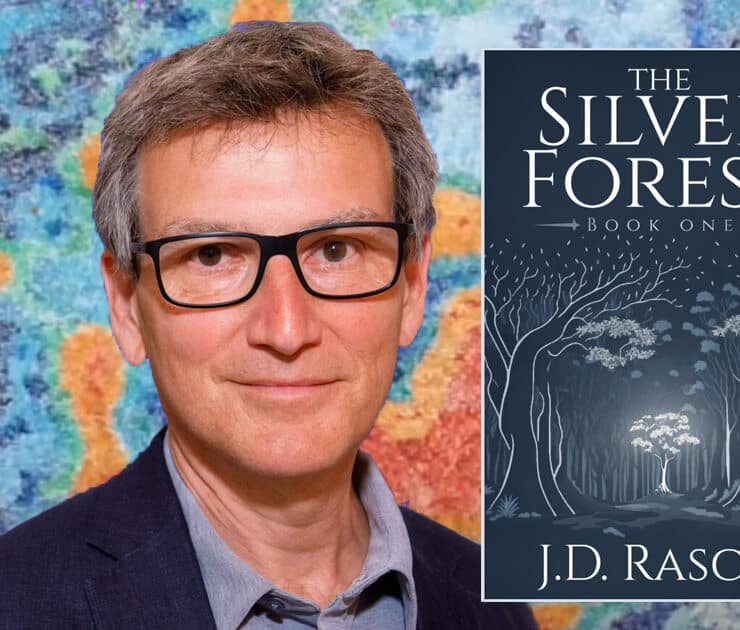New Study Shows Vegan Diet Is Least Harmful to the Environment

A new study by Oxford University shows that eating a vegan diet is far less harmful to the environment than all other available diets

London, UK, August 31, 2023 — A new study by Oxford University has shown that eating a vegan diet is the least harmful to the environment compared with all the other available diets, including vegetarian and pescatarian diets. It concludes that vegan diets result in 75% less climate-heating emissions than high-meat diets (more than 100g of meat a day), as well as 66% less destruction of wildlife and 54% less use of water.
You Can Play a Key Role in Fighting Climate Change… by Going Vegan
The biggest difference seen in the study was for emissions of methane, a greenhouse gas produced by ruminants, which were 93% lower for vegan diets compared with high-meat diets. Additionally, the reduction in dietary impacts of vegans was 25.1% for land use, 46.4% for water use, 34.3% for biodiversity loss and 27.0% for eutrophication, compared with high meat-eaters. Merriam-Webster defines eutrophication as, “The process by which a body of water becomes enriched in dissolved nutrients (such as phosphates) that stimulate the growth of aquatic plant life usually resulting in the depletion of dissolved oxygen.”
Professor Peter Scarborough, the leading author, works at the Nuffield Department of Primary Care Health Sciences, University of Oxford, and the NIHR Oxford Health Biomedical Research Centre at Oxford, Warneford Hospital, Oxford, UK. He said to the BBC, ”Our results show that if everyone in the UK who is a big meat-eater reduced the amount of meat they ate, it would make a really big difference.”
The Most Comprehensive Study to Date

The scientific paper where this research can be read is titled “Vegans, vegetarians, fish-eaters and meat-eaters in the UK show discrepant environmental impacts” and it was published in the journal Nature Food.
Previous studies about which diet is more harmful to the environment have used model diets and average values for the impact of each food type. However, this study is the first one where the real diets of 55,000 people in the UK were analyzed. Additionally, a review of 570 life-cycle assessments, covering more than 38,000 farms in 119 countries, was used to estimate environmental impact. The authors, Peter Scarborough, Michael Clark, Linda Cobiac, Keren Papier, Anika Knuppel, John Lynch, Richard Harrington, Tim Key, and Marco Springmann, claim this is the most comprehensive analysis to date on the subject based on real data and not projections. The abstract of their paper states, “Modeled dietary scenarios often fail to reflect true dietary practice and do not account for variation in the environmental burden of food due to sourcing and production methods.”
The data on food consumption used in this research came from the baseline data collection of the EPIC-Oxford prospective cohort study, in which, between 1993 and 1999, data was collected on 65,411 adults living in the UK, aged 20 years and over. Dietary assessment was conducted using a 130-item FFQ (Food Frequency Questionnaire, a tool commonly used in nutrition research) that assesses the usual levels of consumption of food items over the previous 12 months.
The environmental data on emissions of CH4, N2O and CO2, and estimates of water use, land use, eutrophication (dense growth of algae and plant life caused by excess nitrogen and phosphorus levels in the water) and biodiversity impact on terrestrial vertebrates, was taken from the Poore and Nemecek database.
Prof Susan Jebb, who is head of the Food Standards Agency and a world-leading nutrition scientist at Oxford University, was not involved in the research, but she said the following about it: “What makes this assessment different is that it takes real people’s diets and is based on the various production methods we have at the moment. The researchers have assessed at a much more granular level than has been done before the environmental footprint of what they are eating.”
“Our dietary choices have a big impact on the planet. Cutting down the amount of meat and dairy in your diet can make a big difference to your dietary footprint.” — Professor Peter Scarborough, a leading scientist from Oxford University, England
The Vegan Diet Is Much Less Harmful to the Environment than the Vegetarian Diet

Interestingly, the study also shows that low-meat diets (less than 50g a day) had half the impact of high-meat diets on greenhouse gas emissions, water pollution, and land use, but the differences between low-meat, pescatarian, and vegetarian diets were relatively small.
According to the scientific paper, pescatarians in the study account for 10.4 pounds of carbon dioxide emissions a day, which is lower than meat-eaters (22.5 pounds) but higher than vegetarians (9 pounds) and vegans (5.4 pounds). Therefore, the vegan diet is about four times better than the meat-eating diet, and about twice better than the vegetarian or pescatarian diets, in terms of the greenhouse gas emissions responsible for the current climate crisis. Regarding land and water use and effects on species’ extinction, vegetarians, pescatarians and low-meat diets had similar results, also worse than the vegan diets.
Vegans and vegetarians in the study were younger than pescatarians and meat-eaters. Fish consumption was similar in pescatarians and low meat-eaters, and while total dairy consumption was lower in vegetarians and fish-eaters compared to meat-eaters, there was higher consumption of cheese in these two groups.
“It’s hard to justify changes to the diets of moderate omnivores on the basis of these results, other than to switch to a completely vegan diet.” — Professor Richard Tiffin, University of Reading, England
What's Your Reaction?
Jordi Casmitjana is a vegan zoologist and author.









